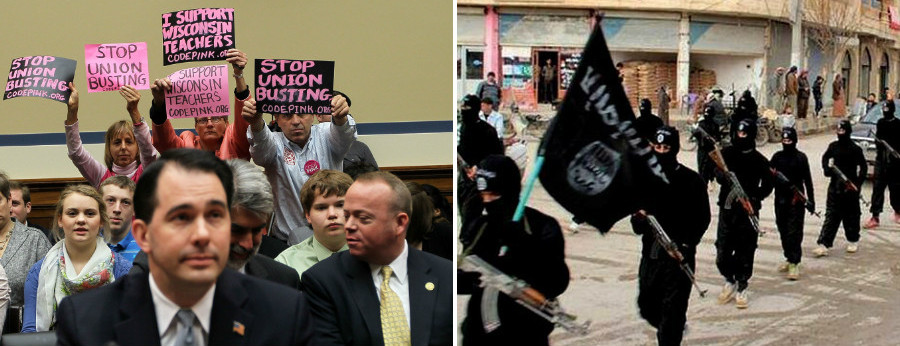8 horrifying revelations in the Justice Department’s Ferguson report
Wednesday, Mar 4, 2015 03:42 PM CST
8 horrifying revelations in the Justice Department’s Ferguson report
From unconstitutional searches to racist emails, here are some of the most revolting findings
Luke Brinker
The Justice Department released its full report on the Ferguson Police Department on Wednesday, seven months after Officer Darren Wilson shot and killed unarmed African American teen Michael Brown — an event which galvanized demonstrators against racial bias in policing and triggered the Justice Department’s probe. Though a grand jury decided not to indict Wilson and the Justice Department opted not to bring federal civil rights charges in the case,
the department’s report makes clear that Wilson was part of a local law enforcement system tainted by racial bias, abuses of citizens’ constitutional rights, excessive use of force, and an over-reliance on fines and fees to generate revenue. 


Such systemic injustices poisoned police-community relations in Ferguson, where 67 percent of the population is African American but the police force is 94 percent white. The Justice report depicts a law enforcement system in deep need of a overhaul — and offers a horrific look at how white supremacy functions in 21st-century America.
Below, Salon looks at eight of the most revolting revelations in the report.
1. Over-reliance on fines and fees for revenue — and pressure to generate more
For years, Ferguson has relied heavily on law enforcement fines and fees to keep city operations running, with the percentage of city revenues generated by such fees gradually increasing over time. In 2011, fines and fees collected by the municipal court accounted for $1.38 million of the city’s $11.07 million in general fund revenue, rising to $2.46 million by 2013. Last year, the city budgeted for the court to collect $2.63 million in revenue.
After sales taxes, traffic fines constitute Ferguson’s second-largest source of revenue. City officials made no secret of their desire to generate more revenue from stops and other law enforcement-imposed penalties, increasing the budgeting for court-generated revenue and stepping up pressure to impose tough penalties. In April 2014, for instance, the finance director of Ferguson wrote city officials to recommend an “I-270 traffic enforcement initiative” in order to “fill the revenue pipeline.”
The fees can be financially punishing for the city’s many poor residents, many of whom can’t afford to pay the burdensome penalties assessed on them — including $302 for a manner of walking violation, $427 for disturbing the peace, and $777 for resisting arrest.
More:
8 horrifying revelations in the Justice Department s Ferguson report - Salon.com


